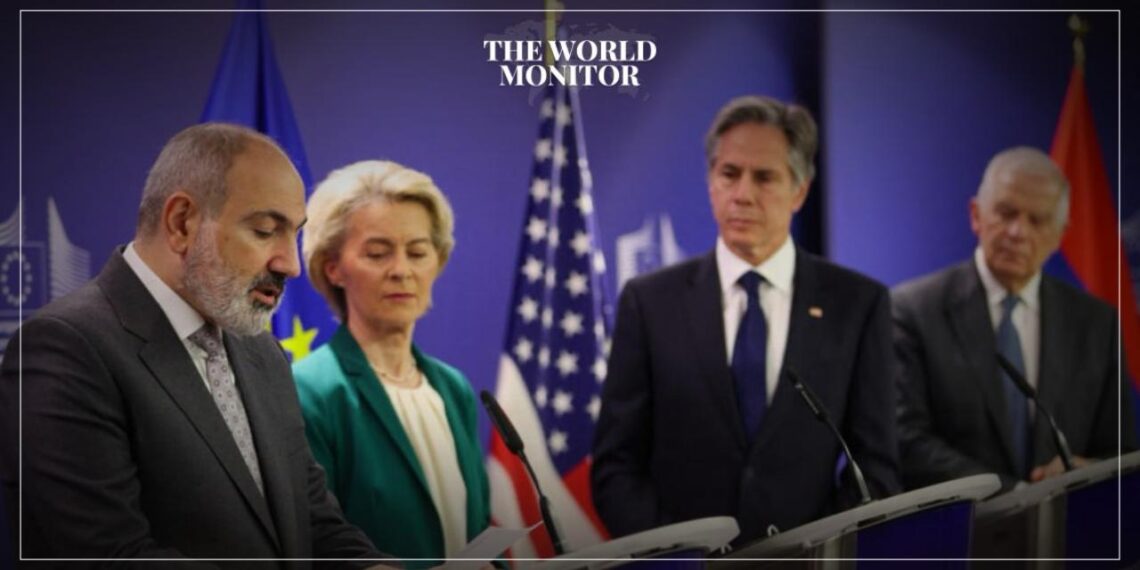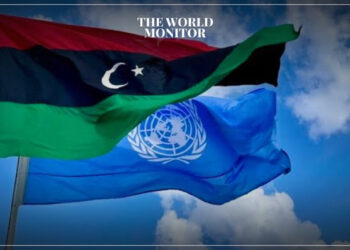On Friday, the European Union (EU) committed to providing Armenia with a financial assistance package worth 270 million euros ($290 million), as part of efforts by Brussels and Washington to strengthen their relationship with Yerevan amidst deteriorating ties with Russia.
This financial support was announced following discussions involving Armenian Prime Minister Nikol Pashinyan, EU President Ursula von der Leyen, and U.S. Secretary of State Antony Blinken, focusing on enhancing collaboration.
Armenia, a country in the Caucasus region, is seeking to consolidate support from Western countries as it moves away from its long-standing ally, Russia.
This shift comes in response to dissatisfaction with Moscow’s inability to prevent Azerbaijan from regaining control over disputed territories in recent years.
Von der Leyen highlighted that this four-year financial aid package, aimed at fostering resilience and growth in Armenia, signifies the EU’s solid support for Yerevan.
She mentioned, “Europe and Armenia share a long and common history and now is the time to start a new chapter.”
Pashinyan emphasized the significance of the Brussels meeting as evidence of Armenia’s growing partnership with the EU and the U.S., expressing confidence in a shared vision for a democratic, peaceful, and prosperous future guiding their relations.
Blinken announced that the U.S. would increase its economic aid to Armenia to $65 million this year, supporting the nation’s efforts to establish itself as a strong, independent country at peace with its neighbors.
He stressed the importance of seizing this critical moment for Armenia and its leadership.
Armenia’s criticism of Russia’s role as a regional security provider and hints at pursuing EU membership have strained its relationship with Moscow.
The frustration with the Kremlin grew, especially as Russia, preoccupied with the conflict in Ukraine and Pashinyan’s western engagements, did not intervene to prevent Azerbaijan from taking over the Nagorno-Karabakh region from Armenian separatists last year.
Since then, Pashinyan and Azerbaijan’s President Ilham Aliyev have expressed optimism about reaching a comprehensive peace agreement. However, recent exchanges of fire across their border have reignited concerns over potential conflict.






